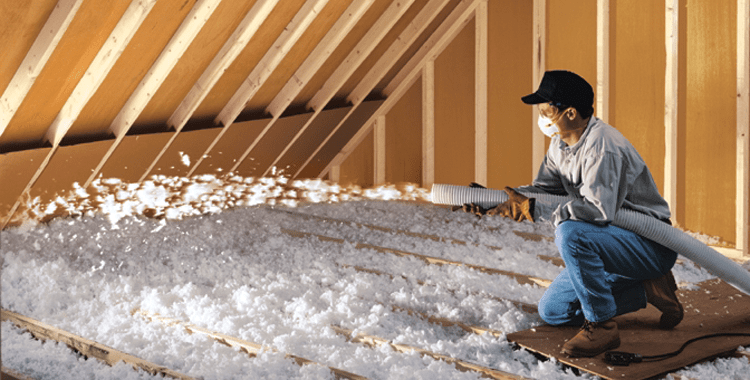A perfect introduction to building science fundamentals, especially for administrative and support staff. Covers key principles of energy efficiency, comfort, and performance. Includes book and testing fees.
Focuses on building envelope systems- air sealing, comfort, durability, and HVAC performance. Ideal for professionals aiming to improve building shell interactions.
Learn how to conduct whole-home assessments, measure airflow, combustion safety, and ventilation performance. This course emphasizes diagnostic skills and solution-based thinking.
Get the complete package: Building Science Principles + Building Analyst Technician + Building Analyst Professional. Designed for professionals looking to master the full scope of building performance.
Earn both the BA-T and BA-P certifications in one comprehensive course. Ideal for professionals seeking practical, field-focused training aligned with industry demands.
Designed for experienced auditors seeking to expand into larger, more complex multi-family projects. Prerequisite: background in building science.
For auditors ready to take their skills to the next level. Learn to evaluate home energy efficiency, model performance, and develop audit reports. Prerequisites apply.
Note: Also qualifies as BPI HEP Energy Auditor – DOE & NREL-aligned.
For advanced technicians with extensive experience in energy auditing and fieldwork. Gain certification to perform Quality Control Inspections and mentor other technicians. Prerequisites required.
Go beyond energy auditing to assess indoor health and safety risks. Designed for professionals seeking to make a meaningful difference in occupant health.
Discounts available for Efficiency First, SCHPA, and HPACT members.
Covers the 7 Healthy Housing Principles: keep it clean, dry, pest-free, contaminant-free, safe, ventilated, comfortable, and maintained. Great for contractors entering the health-focused housing field. Includes book and testing fees.
Learn how to evaluate and optimize heating systems within the context of whole-home performance. Certification covers equipment installation, operation, and energy efficiency for buildings up to four residential units.
Gain the skills to perform blower door and duct leakage tests in compliance with IECC codes. Essential for HVAC, insulation, and remodeling contractors. Certifies to ASTM E1554-07 and ASTM E779 standards.
A suite of courses focused on jobsite safety and technician well-being. Includes confined space safety and spray foam application training.
Learn how to protect yourself and your team while working in confined spaces. Covers OSHA-aligned best practices and entry procedures for permit-required environments.
Understand the risks and safety precautions for working with high- and low-pressure spray foam systems, including chemical safety and health guidelines.

Enroll in a open course to learn from one of our BPI certified proctors.
Prepare for your final exam by studying practice questions given throughout the course.
BSP Exam costs $109 and can be purchased directly from (bpi.org).

Enroll in a open course to learn from one of our BPI certified proctors.
Prepare for your final exam by studying practice questions given throughout the course.
BSP Exam costs $109 and can be purchased directly from (bpi.org).

Enroll in a open course to learn from one of our BPI certified proctors.
Prepare for your final exam by studying practice questions given throughout the course.
BSP Exam costs $109 and can be purchased directly from (bpi.org).

Enroll in a open course to learn from one of our BPI certified proctors.
Prepare for your final exam by studying practice questions given throughout the course.
BSP Exam costs $109 and can be purchased directly from (bpi.org).
This course provides all of the knowledge, skills and abilities you’ll need to perform the tasks required by a HEP Quality Control Inspector (QCI) as outlined in the Job Task Analysis developed by the U.S. Department of Energy and the National Renewable Energy Laboratory (NREL). Specifically, you will be prepared to confidently conduct diagnostic audits and inspections to verify the compliance of retrofit work to work plans and standards, and develop reports specifying corrective actions.
The BPI-IDL exam consists of three main components relating to new residential construction Air Infiltration and Duct Leakage: whole house air infiltration verification & testing, total air distribution system leakage and air distribution leakage to the outside.
Anyone interested in the connection between human health symptoms and the possible home issues that could be causing them should consider earning the Healthy Housing Principles Certificate.
By earning the HHP, the following groups will gain insight that could help shape their careers:
If you are already working in home performance, chances are you are already improving your clients’ health. In fact, the Department of Energy (DOE) found that home performance upgrades done with energy efficiency in mind also improve overall occupant health.
Take your home performance knowledge and experience to the next level by learning how to integrate health into your home performance work.
Achieving the Healthy Housing Principles (HHP) Certificate of Knowledge signifies your understanding of how the various components of a home interact to influence the health of its occupants. Homeowners and renters play vital roles in the home’s ecosystem and are impacted by their adherence to these eight principles:

The Heating Professional brings diagnostic skills used to assess heating systems for safety and performance. Some of the highlights include performing temperature rise tests, checking furnace controller settings, diagnosing flow problems, measuring duct leakage, assessing heat exchangers, and confirming Steady State Efficiency (SSE).
The BPI Infiltration and Duct Leakage (IDL) Certification is a single measure certification that meets IECC code compliance for builders, contractors and code officials who must perform duct leakage test, duct blaster testing and/or blower door tests on new construction or renovations to exisiting properties. Passing the exam (field exam only) verifies the candidates can conduct duct leakage testing, duct blaster testing and blower door tests to the ASTM E1554-07 standard and awards the candidate with the BPI Infiltration and Duct Leakage (IDL) Certification.
The BPI-IDL exam consists of three main components relating to new residential construction Air Infiltration and Duct Leakage: whole house air infiltration verification & testing, total air distribution system leakage and air distribution leakage to the outside.
This involves evaluating the safety and efficiency of combustion appliances like furnaces and water heaters, including testing for carbon monoxide.
This diagnostic technique measures the amount of air leakage in a building’s envelope to identify areas for improvement.
This involves a comprehensive evaluation of the building’s envelope, insulation, and other systems to identify potential issues affecting energy efficiency and comfort.
Training emphasizes safety protocols to ensure the well-being of the technician and occupants while conducting these tests.

Observing safety measures for polyurethane spray foam installation should be the priority for every job regardless of size. Being well versed in using polyurethane spray foam machinery and components will ensure a safe working environment and avoid any hazards.